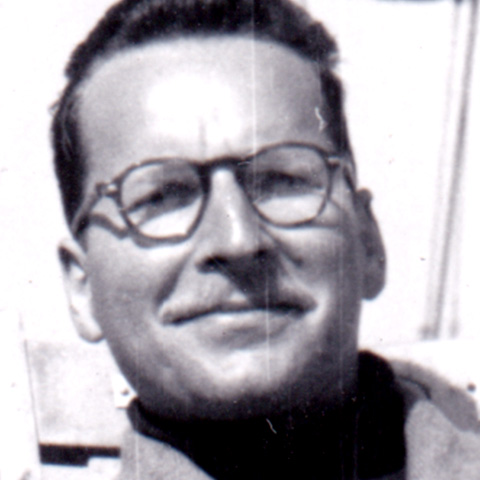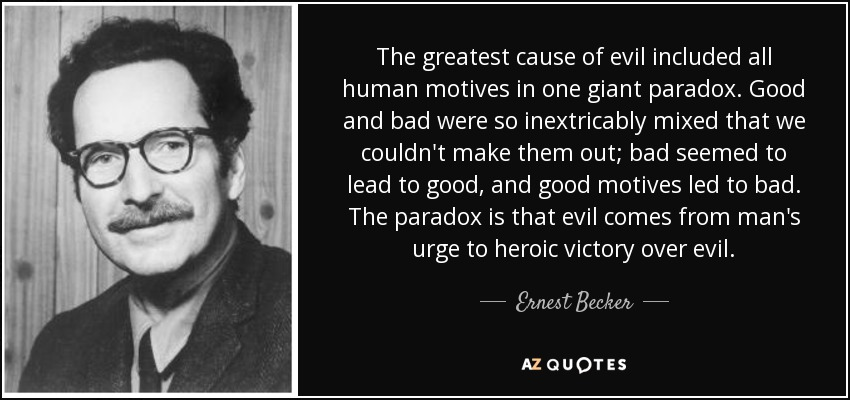“Burnout is nature’s way of telling you, you’ve been going through the motions your soul has departed; you’re a zombie, a member of the walking dead, a sleepwalker. False optimism is like administrating stimulants to an exhausted nervous system.”
? Sam Keen, Fire in the Belly

Ernest Becker’s Denial of Death, the source of terror management theory, tells us that we need better narratives of heroics if we want to turn the metacrisis around.
Our fear of death, and our modern heroics based on consumption and individualism, rather than sacrifice to something greater, creates a feedback loop of dissatisfaction that leads to more self-objectification and identification with zombie identities.
Wealth undermines conservation goals – a materialistic culture begets less nature. If we want pro-environmental behavior, we need to be of service to something greater to ourselves.
Kim Stanley Robinson gets it right that we need new nature religions that preserve and conserve — we need a new conservatism, if we are to survive. Away with this snowflake move of dominion. Dominating is for people who are afraid of consent. Who are too awkward to be vulnerable to be dialogic. Dialogos means a dance between self and other, rather than imposition. And when you’ve been used to commanding and demanding, sharing and listening feels like a violation.
It isn’t.
The Denial of Death was published in 1973, and Sam Keen met with Ernest Becker shortly before his passing in 1974. Keen recounts Becker’s first words: “You are catching me in extremis. This is the test of everything I’ve written about death. And I’ve got a chance to show how one dies, the attitude one takes. Whether one does it in a dignified, manly way; what kinds of thoughts one surrounds it with; how one accepts his death” (xi).
Keen breaks Becker’s philosophy into four strands. First, the world is terrifying in that all that lives and breathes eventually falls apart and dies. Second, human behavior is motivated by “our biological need to control our basic anxiety, to deny the terror of death” (xii). We act in response to our damnation to die. Third, this terror is so unbearable that we do our utmost to remove it from our conscience. In our youth, we adopt the characteristics of the strong and unkillable to defend us from our morality. Later on, we devote ourselves to immortality projects in our attempt to contribute to something of lasting worth and thereby become heroic and transcend death. Our wars are motivated less by necessary conflict than by our need to contribute to something lasting like crushing a threat. Fourth, these immortality projects, while well intended, do more harm than good. Evil is brought about by “our need to gain self-esteem, deny our mortality, and achieve a heroic self-image” (xiii).
Becker attempts to attack the root of evil—this destructive heroism—with two possible forms of nondestructive heroism. We could change the target of our hatred towards something impersonal like poverty or disease. Alternatively, we could “practice dying” (like Socrates says in the Phaedo) and hope that harnessing our consciousness of death “leads to disillusionment, loss of character armor, and a conscious choice to abide in the face of terror” (xv).
We need nondestructive heroism – and we need to organize this quickly, if we are to escape the Scylla of a surveillance society (totalitarianism) and the Charybdis of anarchy libertarian death-spiral (every man for himself, no laws on AI, environment; fake ideas of freedom as license a là JS Mill’s admonition). Daniel Schmachtenberger discusses this ‘third attractor’ away from these two other dangers at length.
